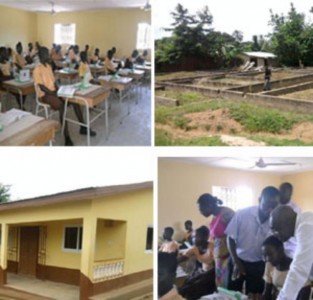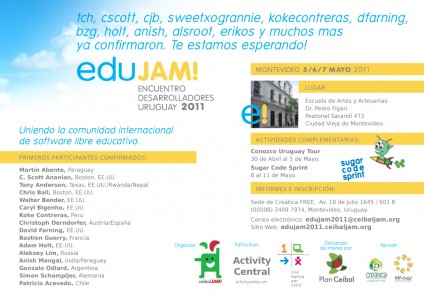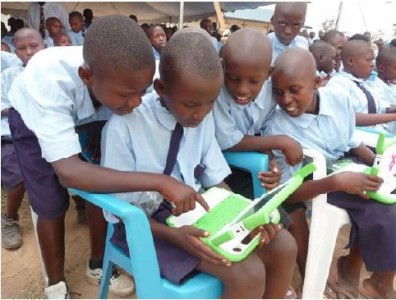The African Union [AU] and One Laptop per Child today signed a Memorandum of Understanding in which they commit to provide laptops to primary school students throughout Africa.  Matthew Keller, OLPC’s Vice President of Global Advocacy, and Lidet Tilahun, Vice President of International Outreach, were present for the signing at AU’s Headquarters in Addis Ababa, Ethiopia.
The AU has committed itself to work with OLPC in developing large-scale laptop projects, and to work with OLPC on seeking funding from prospective donors as well as recipient countries for these projects. OLPC and the AU will work together to leverage the advantages of the XO laptop and its award-winning Sugar operating system in transforming primary school education, and to promote strategies for better access to laptops and connectivity.
“OLPC’s partnership with the African Union represents another significant step toward a world in which every child has access to a world-class education, to the world’s body of knowledge, and to each other,†said Keller. “The African Union is dedicating itself not simply to One Laptop per Child, but to a world in which the children become agents of change – making things, teaching each other and their families and affecting the social development of their community.â€
Commissioner Jean-Pierre Ezin, the AU Commissioner for Science and Technology, said, “Getting connected laptops filled with dynamic educational content into the hands of children throughout Africa will change the way this generation of children thinks and learns. The AU is eager to realize what could be a profound development as a result of advanced technology in the way learning happens both in and out of school, the way that books are read, and the way that education happens inside a classroom. This is a very ambitious project for which we will have to partner with various people and institutions to mobilize and find the resources required to meet the objective of educational transformation.â€



